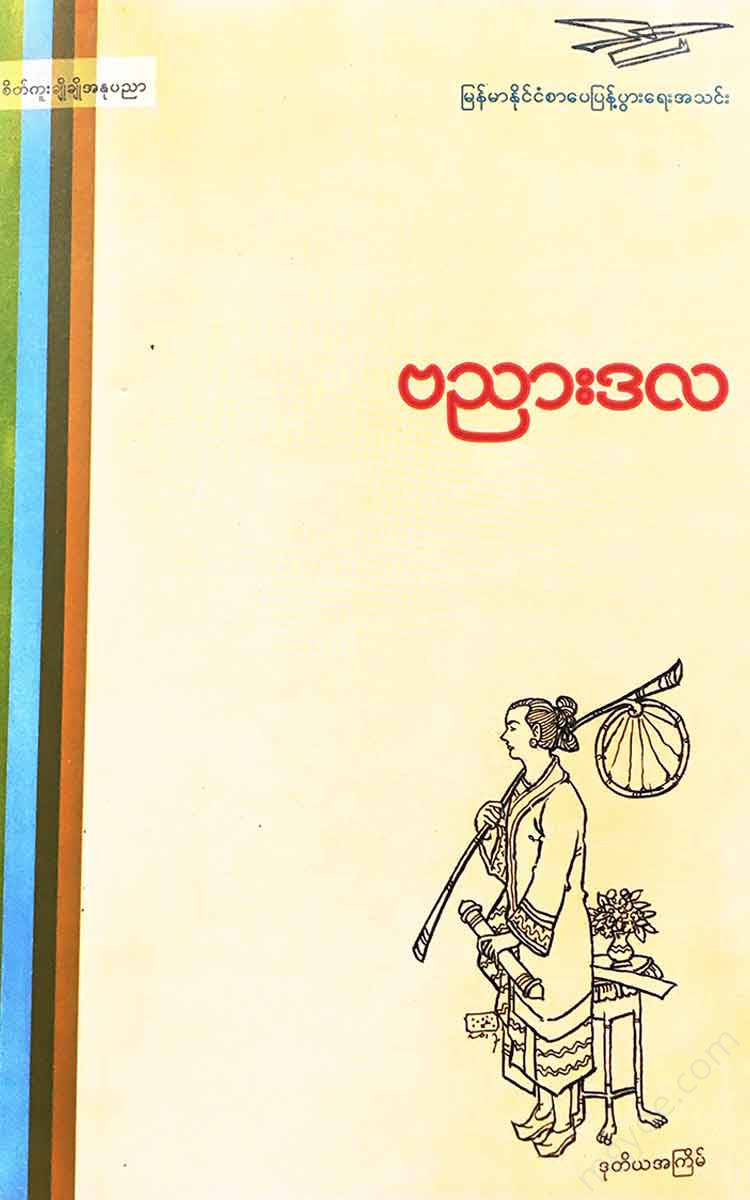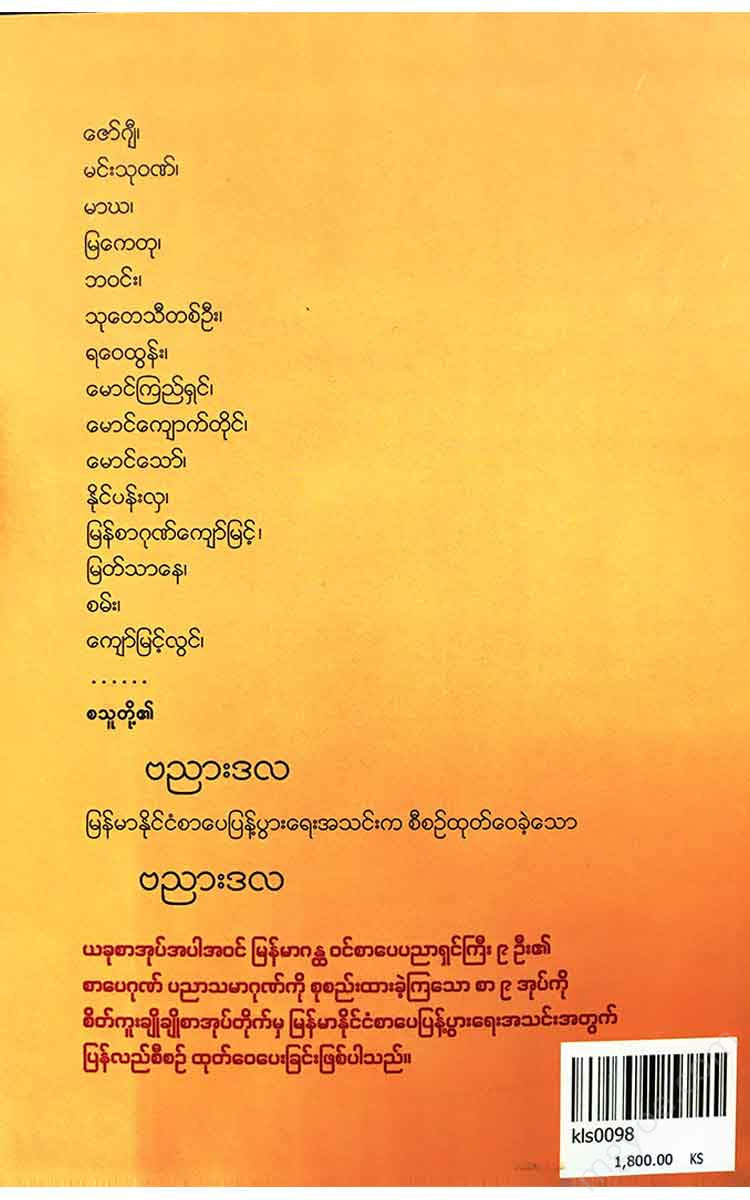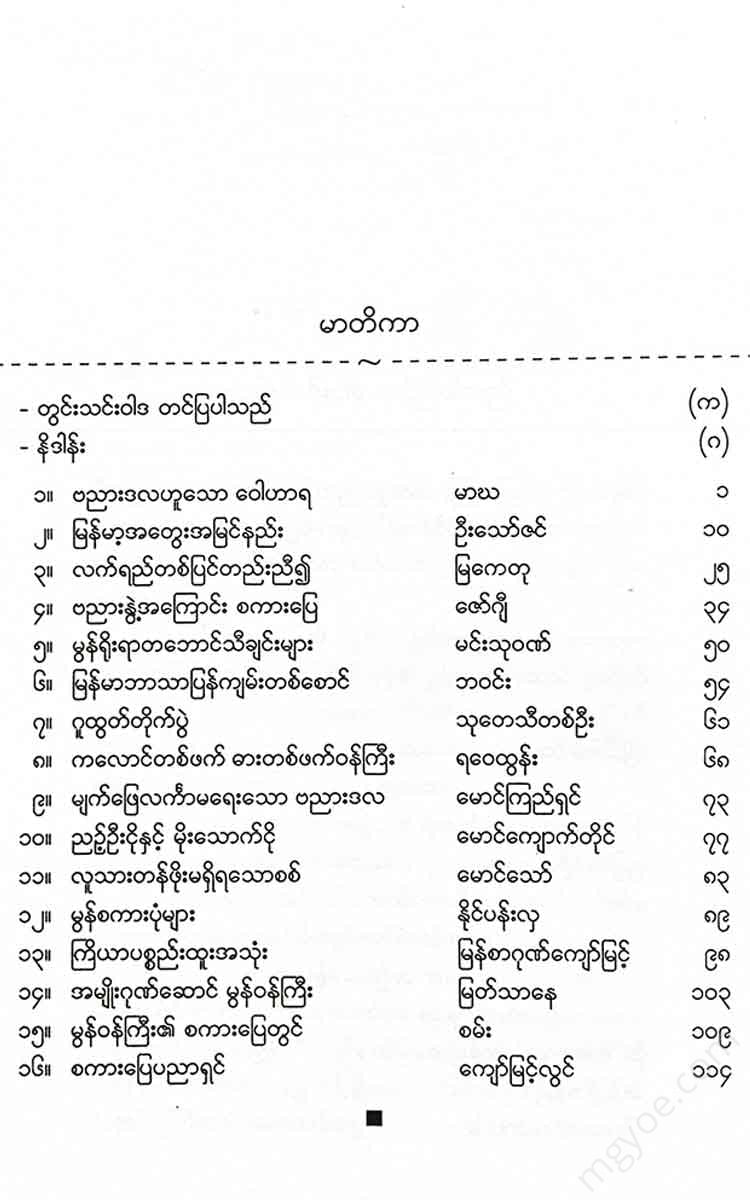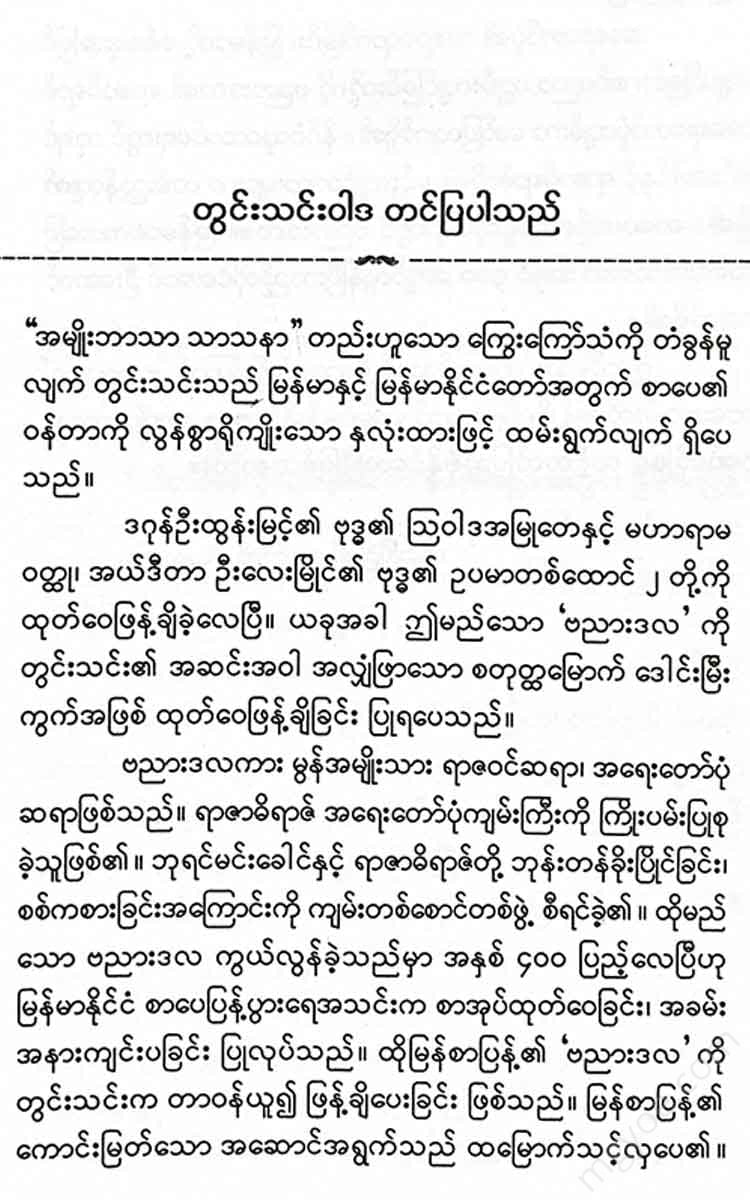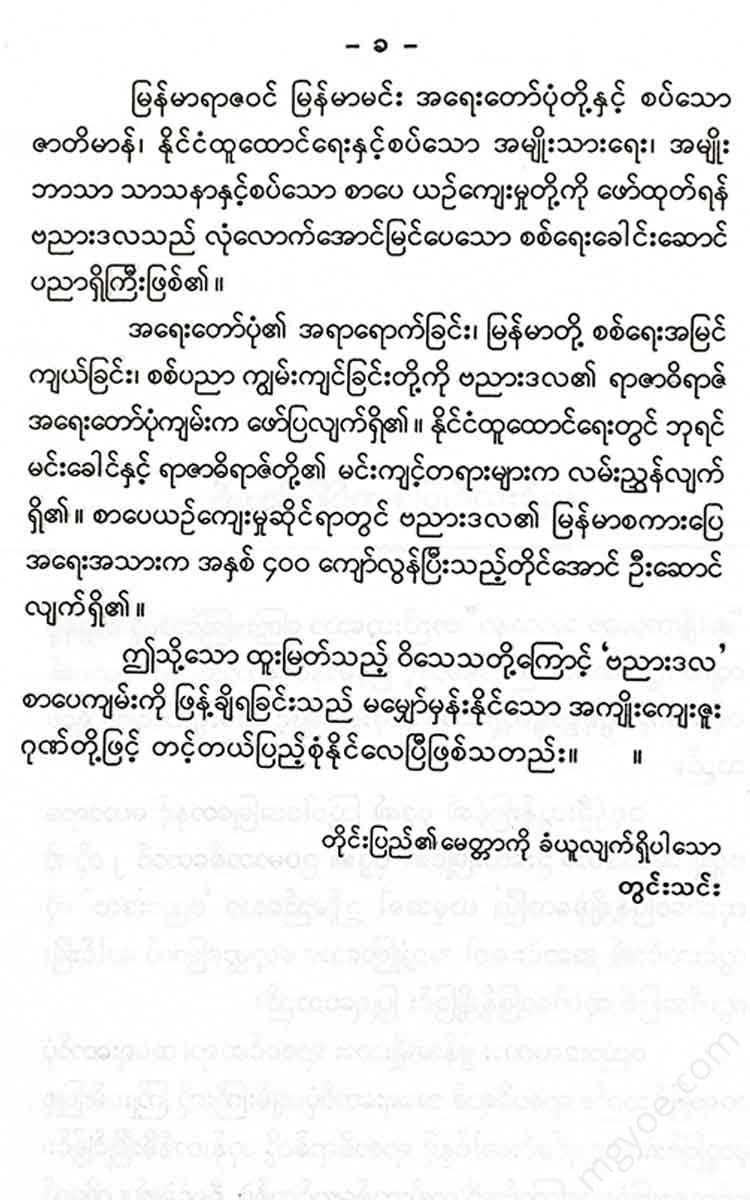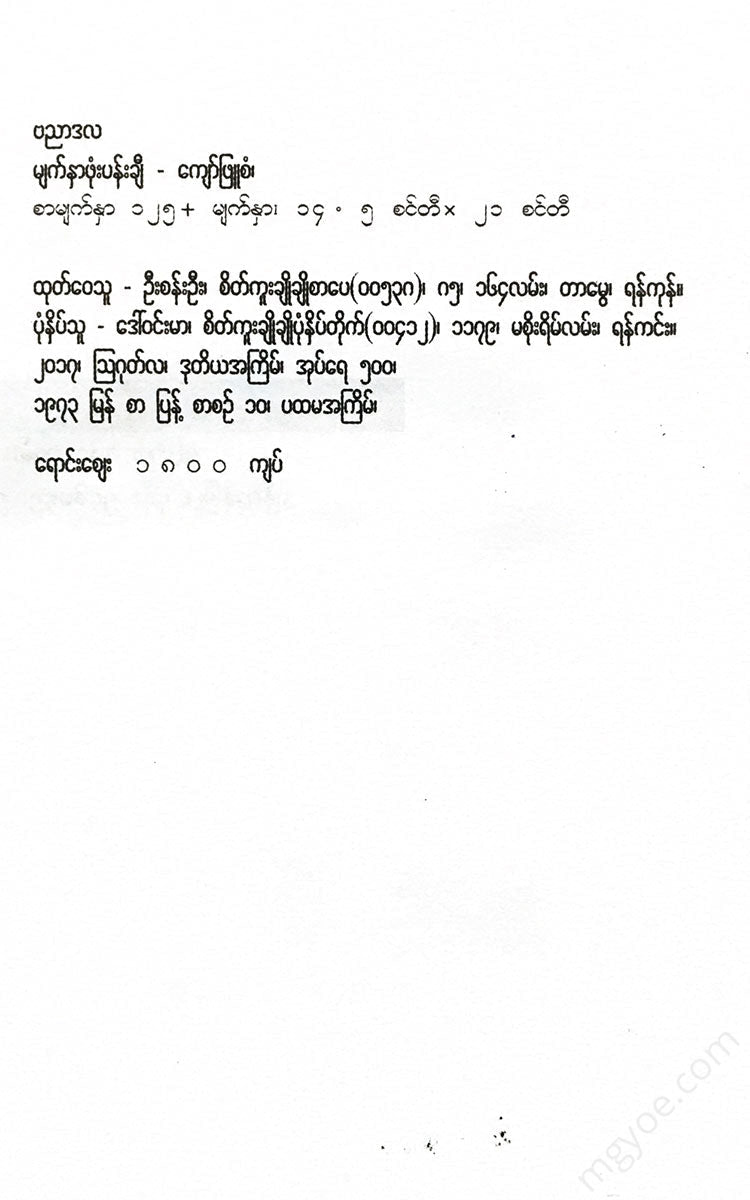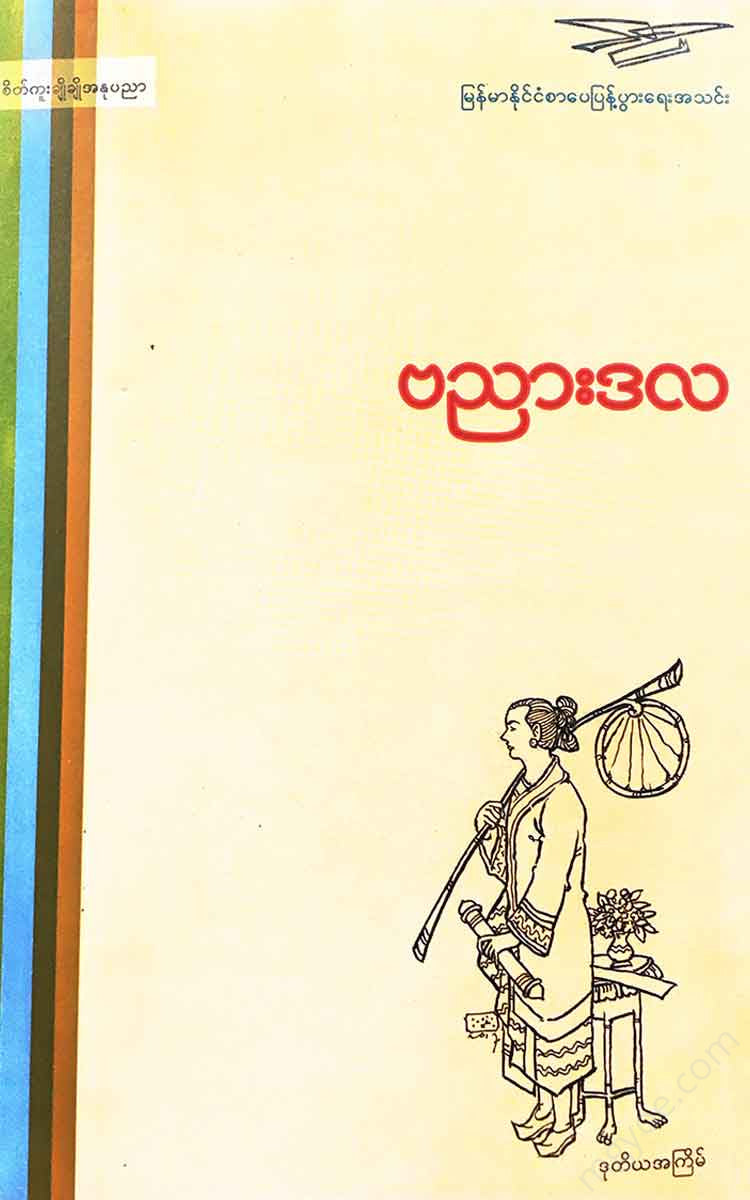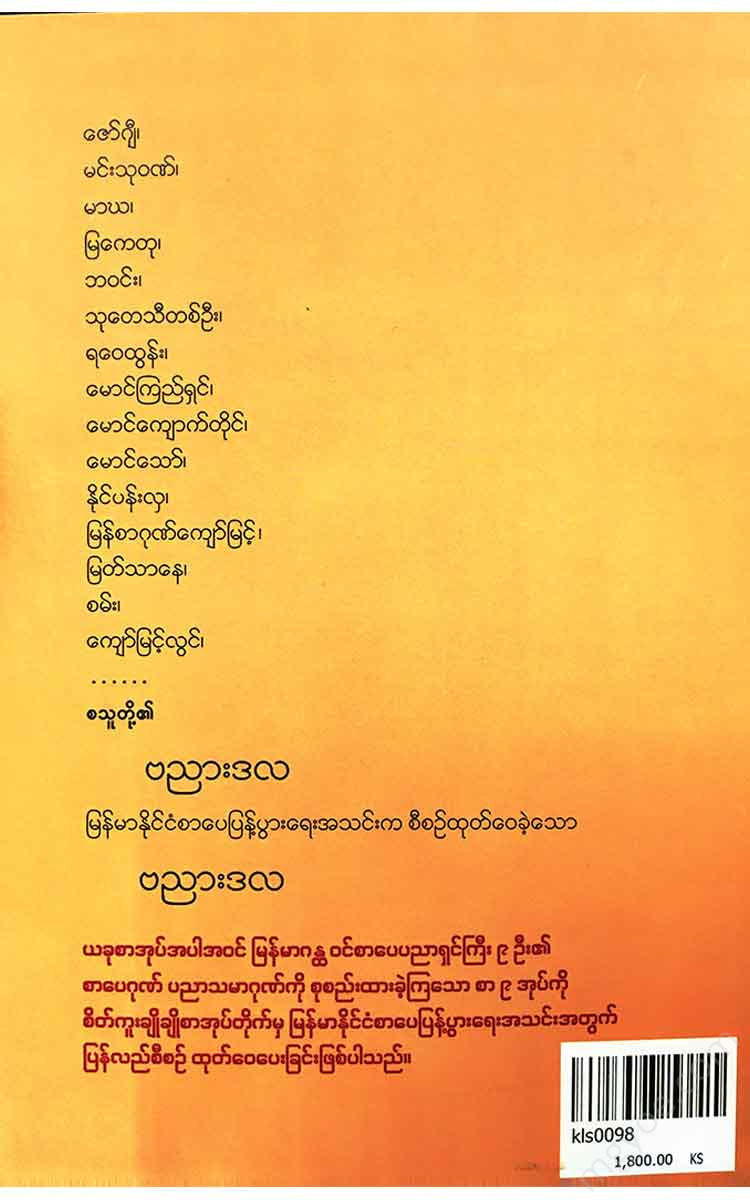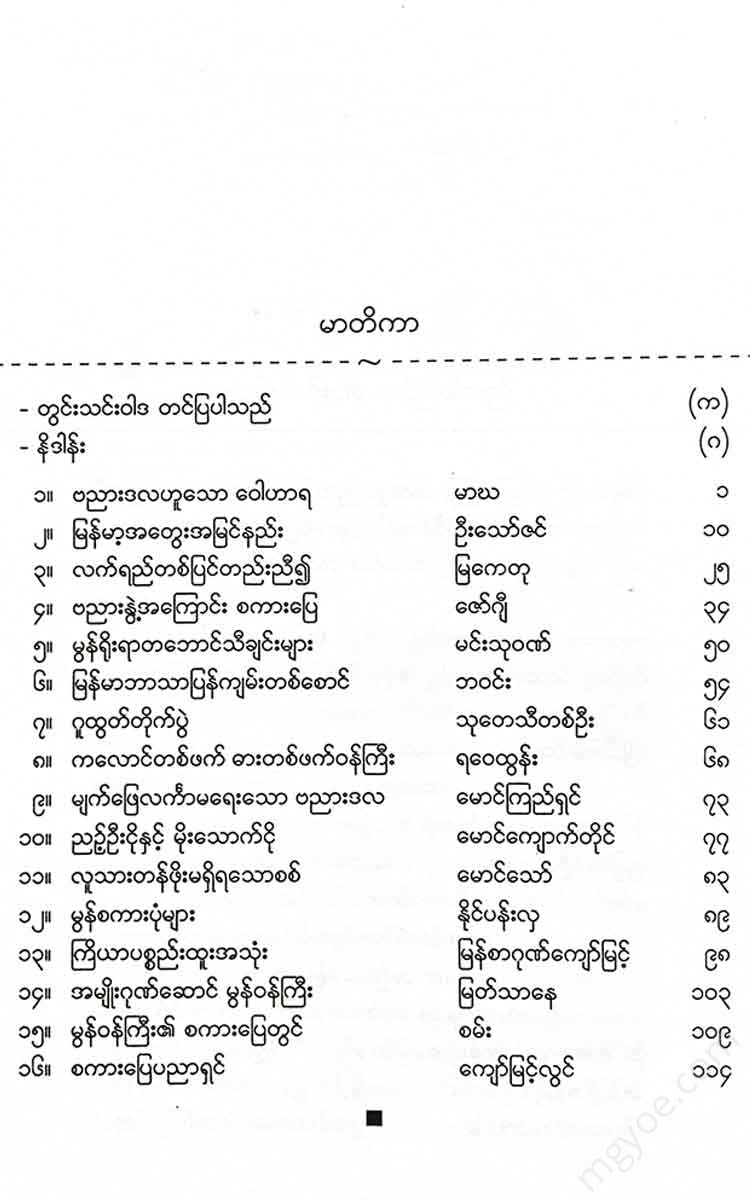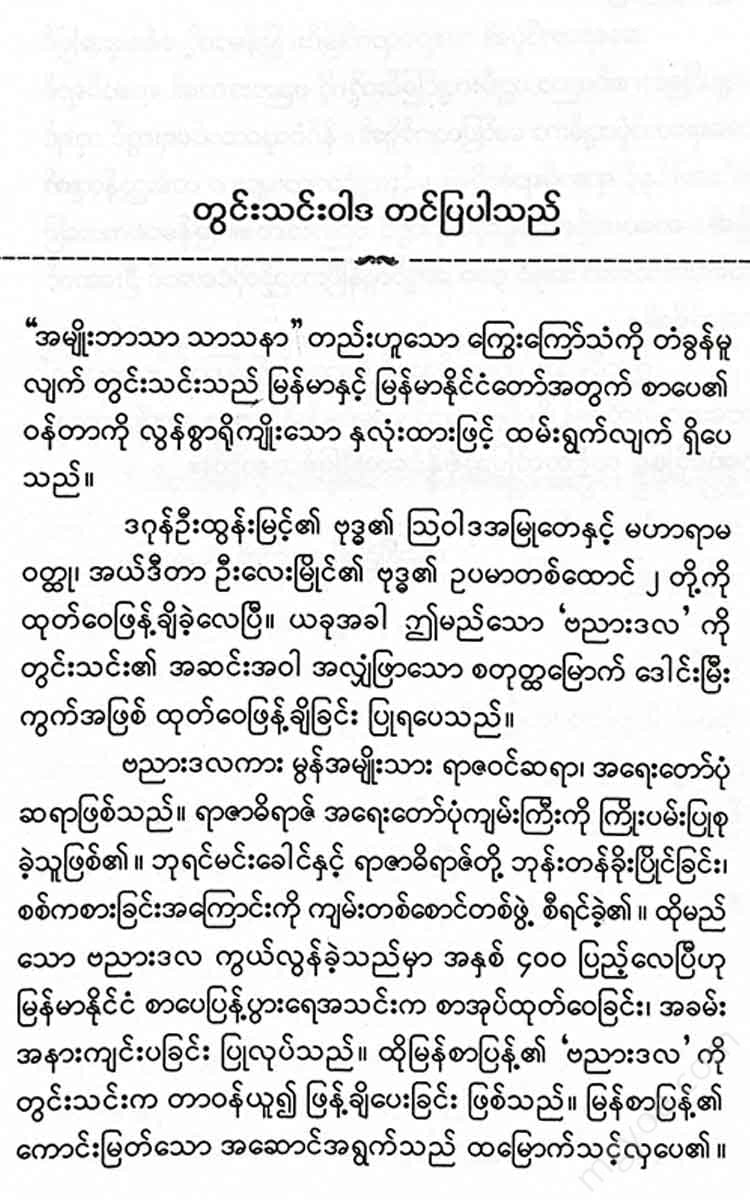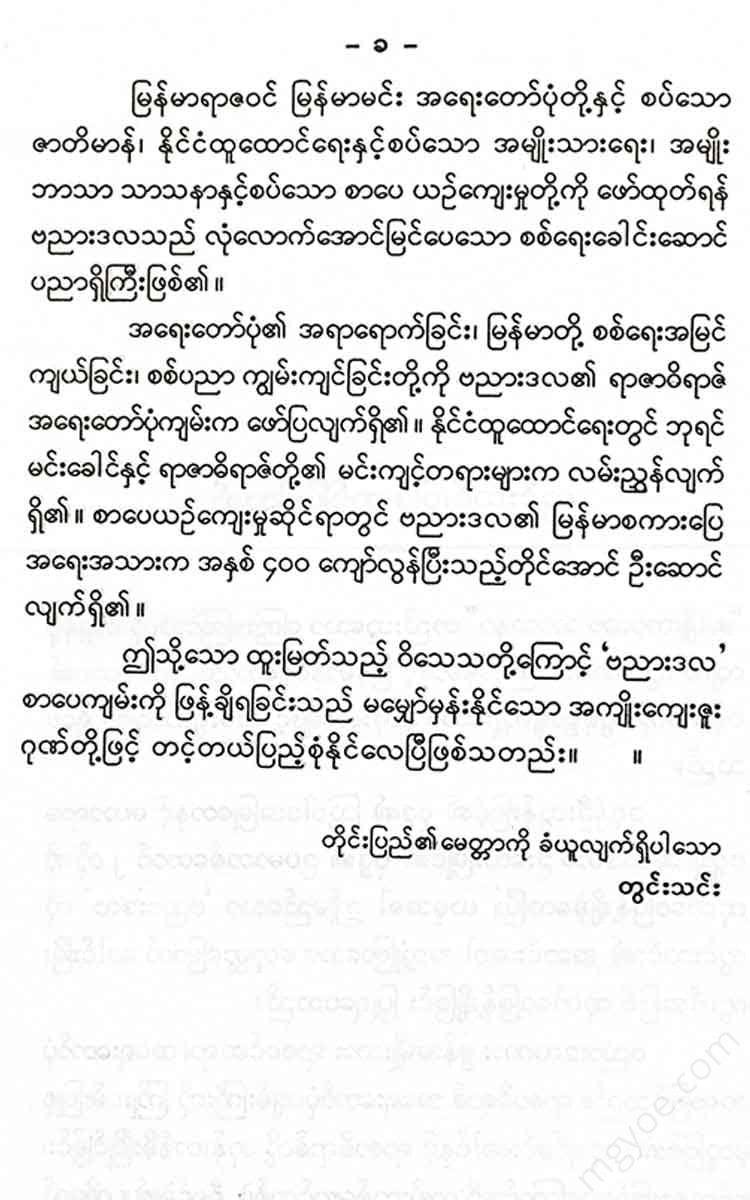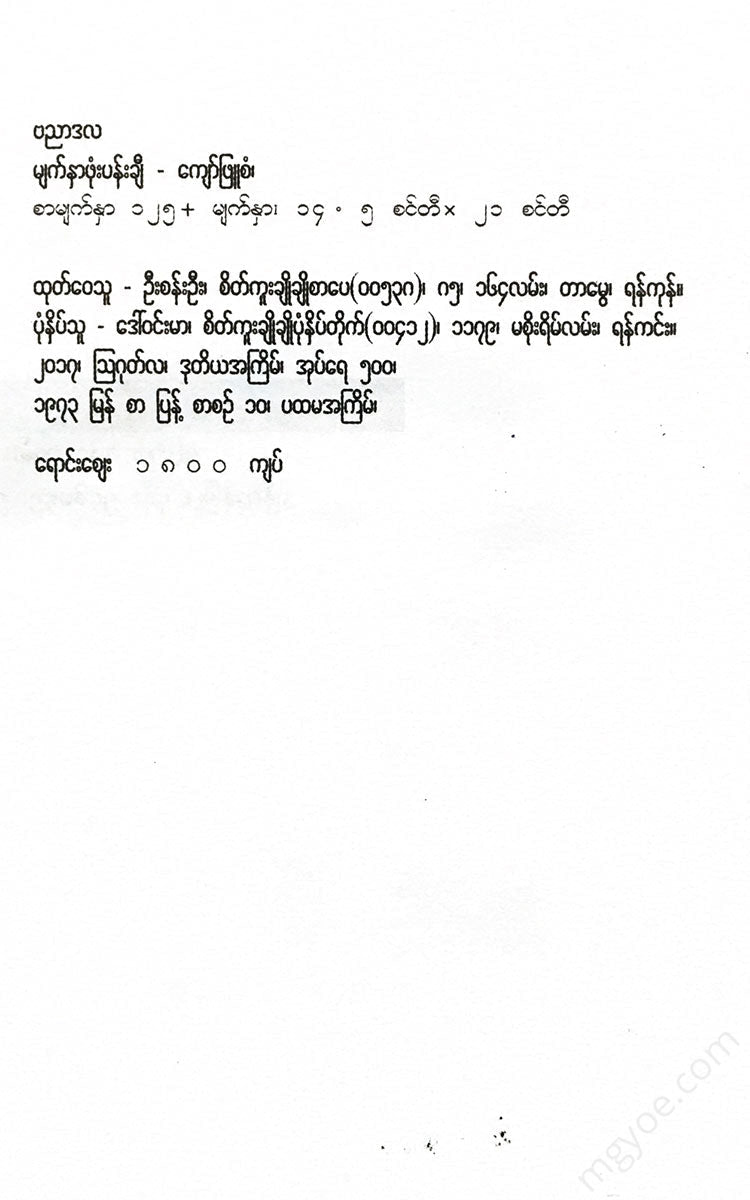စိတ်ကူးချိုချိုစာပေ
Complete set - Banyadala
Complete set - Banyadala
Couldn't load pickup availability
Introduction
The Myanmar Literature Promotion Association was established on the 1st day of the first lunar month of the year 1321, the Day of the Writers, and has now been in existence for 14 years.
During the fourteenth anniversary, Myanma Sa Pyin held annual literary, cultural, and artistic commemorations, published books, and held lectures.
The society's series, the Art World Series, was published up to No. 3. It published literary works such as Leti Pandita, Vatto Dhani, Myawaddy King, Shin Maharattha Shara, Kyaw Aung San Thar, and Seinta Kyaw Thu. Now, this book, "Banya Dala," has been published again.
Among the commemorative ceremonies and lectures, the following were held: the 25th anniversary of the death of Letti Pandita, the 25th anniversary of the death of Sein Veda, the 600th anniversary of the founding of Inwa, a musical performance lecture by Sayar Tin and Shwe Tai Nyunt in front of the palace, a drama discussion, a music discussion, a reading of the novel by Pargu's brother Min Nan, a reading of the play Byat Vibyat by the great monk Thakin Htin Ming, the 120th anniversary of Bo Wazira, the 200th anniversary of King Myawaddy, the 500th anniversary of Shin Maha Ratthasara, the 25th anniversary of the Silver Jubilee of the Sasodaw Day, the 200th anniversary of the publication of the Swami Attha Pakathani, and the 150th anniversary of King Kinwan. The Myawaddy King's Festival, Einaw Alang Than Thien Phai Khan, was written by writer Nan Nyunt Swe and performed by Alanka Kyaw Swar, a writer and director, under the guidance of U Thu Kha, along with Ywakha Sein Sting Seng. In the Einaw drama, the great music was performed by Alanka
Great musicians such as Kyaw Swar Daw Saw Mya Ekyi, Alanka Kyaw Swar U Ba Maung, and Wunna Kyaw Htin Daw Aung Kyi sang and offered their music to King Myawaddy.
This year, I have the opportunity to express my gratitude to the Mon minister Banyadala. He was a great Mon scholar and deserves special praise and honor. In fact, the minister passed away in 934, and in 1334, the 400th anniversary of his death was celebrated, and a book was to be published in that year. However, the biography reading of Deedok U Ba Cho and the reading of the newspaper U Thein Maung At-Kapt Patti were held in 1335, and they were delayed for a few months.
The 400th anniversary of Banyar Dala was celebrated on the 7th day of the full moon of Waso in 1335 at the Ramakrishna Association Hall, Botahtaung Pagoda Road, Yangon. Mon culture and literature expert Sayar Nai Pan Hla gave a speech about Banyar Dala and the Royal Revolt. Mon culture musicians paid tribute to the Mon statesman Banyar Dala with Mon music. Sayar Yan Naing Swe wrote a song in honor of Banyar Dala, which was translated into Mon by Min Hta Paing. We are also very grateful to these people.
Myan Sa Pyin would like to express our special gratitude to the great writers who wrote the manuscripts with love and dedication for the publication of this “Banyadala” book, and to the Dwinthin Publishing House, which is responsible for the entire process of converting the manuscripts into books and distributing them nationwide.
Book publishing team
Myanmar Literature Promotion Association
From the throne to the throne
Our King, the King of Hanthawaddy, seeing the suffering of both armies, considered the past, the future, and the present. If both emperors were arrogant and proud and competed for victory and defeat, both armies would be destroyed. The citizens, the people of the city, and the monks and nuns should abstain from charity, morality, and meditation. All these sins were found in the two emperors, said the King. Seeing this, the king, the man of wisdom, who was filled with the ability to understand the world, was afraid of sin, so he softened his pride and humbled his arrogance and gave the power and responsibility to our four ministers to resolve the war issues verbally.
(Banyadala-108)
